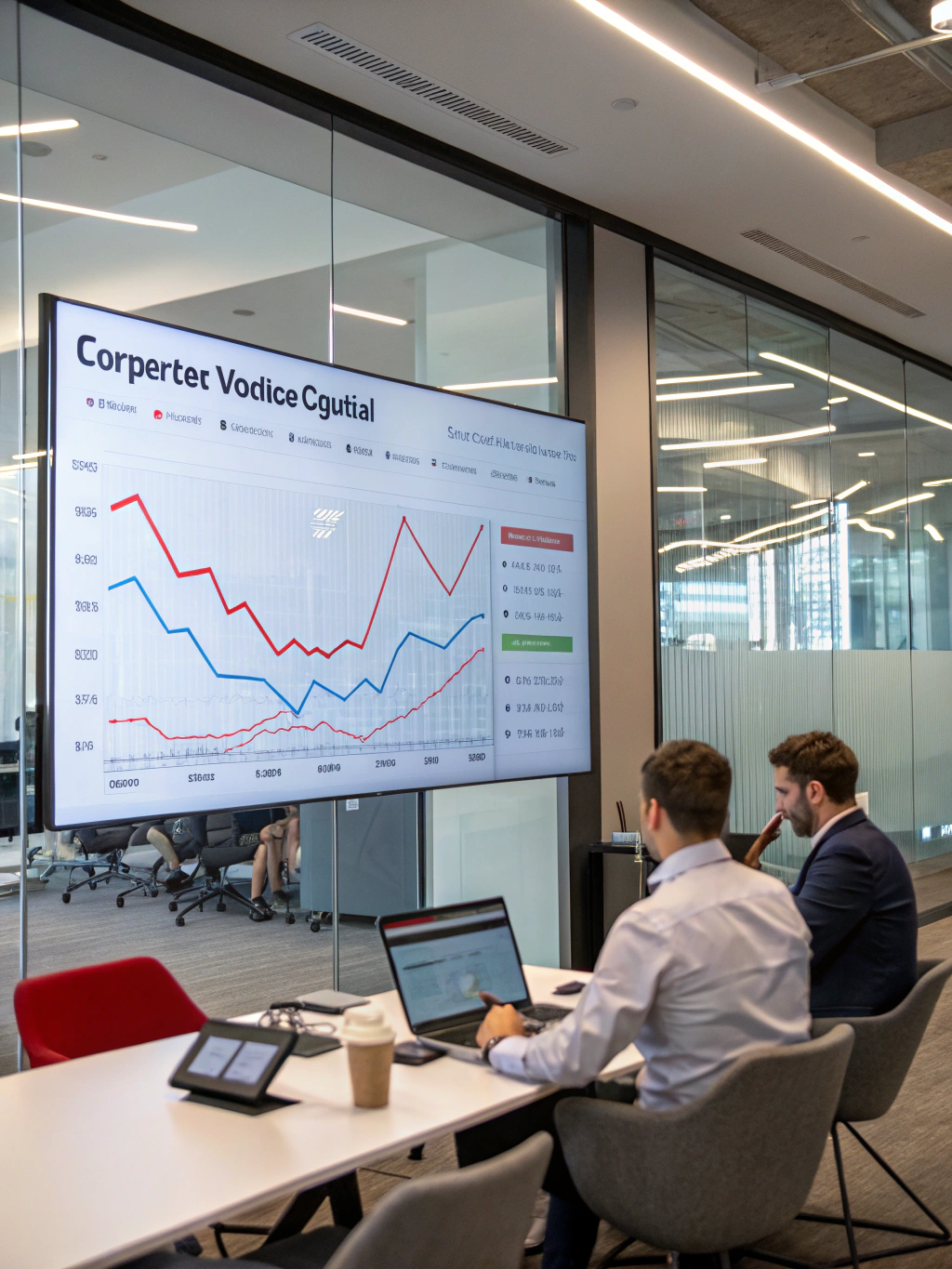Beyond Profit: Decoding Corporate Venture Capital Trends in 2024
Navigating the Future of Business: Key Trends in Corporate Venture Capital The business landscape is evolving at warp speed. From the explosion of artificial intelligence to the decentralized finance revolution, companies are constantly seeking ways to innovate and stay ahead. A powerful driver of this change is corporate venture capital trends. Businesses are increasingly looking beyond traditional R&D to fuel growth by investing in promising startups. This blog post dives deep into the current landscape of corporate venture capital trends, exploring how companies are leveraging strategic investments to shape the future and unlock new opportunities. We’ll also examine the interplay with emerging technologies like AI agents and the broader financial environment, providing a comprehensive view for business leaders, investors, and anyone interested in the future of innovation. The Rise of Strategic Investments: Why Corporate Venture Capital Matters Now For many years, venture capital (VC) was largely the domain of dedicated VC firms. However, a significant shift is underway, with large corporations increasingly establishing their own venture arms. This isn't merely about financial returns; it's a strategic move to gain access to disruptive technologies, talent, and market insights. These strategic investments allow companies to: Stay Ahead of the Curve: Early access to innovative solutions helps companies anticipate and adapt to changing market demands. Access New Technologies: Corporate VCs can tap into cutting-edge developments in areas like AI, blockchain, and biotechnology. Foster Innovation: By partnering with startups, companies can stimulate internal innovation and create new business models. Gain Market Intelligence: Investments provide valuable insights into emerging trends and customer needs. This deeper integration of corporate and startup worlds is redefining how innovation happens. It is fueling the growth of corporate venture capital trends, transforming them from a niche strategy to a mainstream business imperative. Companies like Google (GV), Microsoft (M12), and Intel Capital are leading the charge, demonstrating the significant value of this approach. AI Agents and Automation: A Key Focus for Corporate Venture Capital Artificial intelligence (AI) is undoubtedly one of the most disruptive forces of our time, and it's at the forefront of corporate venture capital trends. Beyond the hype, AI agents and automation are generating significant investment activity. Companies are recognizing the potential to leverage AI to improve efficiency, personalize customer experiences, and create entirely new products and services. Here’s a closer look at some key areas: Generative AI: Tools like ChatGPT are capturing the industry's attention, and corporate venture capital trends show significant investment in companies developing and deploying generative AI solutions for content creation, code generation, and more. AI-Powered Automation: Automation is transforming industries from manufacturing to customer service. Corporate VCs are backing startups developing AI-powered automation platforms. AI for Cybersecurity: As cyber threats become increasingly sophisticated, AI is essential for threat detection and response. Investment in AI-driven cybersecurity companies is booming. AI in Healthcare: From drug discovery to personalized medicine, AI is revolutionizing healthcare. Strategic investments are pouring into companies leveraging AI to improve patient outcomes and reduce costs. Emerging Markets & Alternative Investment Strategies in Corporate Venture Capital While Silicon Valley has historically been the epicenter of VC activity, corporate venture capital trends are expanding geographically. Companies are increasingly looking to emerging markets like Southeast Asia, Latin America, and Africa for investment opportunities. These regions offer high growth potential and access to new customers. Beyond AI and automation, companies are also exploring strategic investments in alternative asset classes, including: Web3 & Blockchain: Despite market volatility, there remains strong interest in companies building the next generation of decentralized applications. Climate Tech: With growing concerns about climate change, corporate venture capital trends increasingly include investments in companies developing sustainable solutions. Biotech & Health Innovation: Investment in cutting-edge biotech companies and healthcare startups is growing rapidly. Space Tech: Private space exploration is taking off, offering unique opportunities for technological advancements and strategic investments. Navigating the Risks & Rewards of Corporate Venture Capital While the potential rewards of corporate venture capital trends are significant, it’s important to acknowledge the risks. Startups are inherently risky ventures, and there’s no guarantee of success. Corporate VCs need to develop robust due diligence processes and have clear investment strategies in place. Here is a brief comparison between traditional VC and Corporate Venture Capital: Feature Traditional VC Corporate Venture Capital Primary Goal Financial Return Strategic & Financial Return Investment Horizon 5-7 years Variable, often aligned with corporate strategy Expertise Specialized in VC Leveraging Corporate Expertise Portfolio Size Smaller, focused Can be larger, broader focus Influence Limited operational involvement Potential for deeper integration & influence Successful corporate venture capital trends require a clear understanding of the startup ecosystem, a willingness to take calculated risks, and a commitment to fostering collaboration between corporations and startups. The Future of Corporate Venture Capital Looking ahead, corporate venture capital trends will continue to evolve. We can expect to see: Increased Focus on Sustainability: Companies will increasingly prioritize investments in companies developing sustainable technologies. Expansion into New Geographies: Corporate VCs will expand their reach into emerging markets. Greater Emphasis on Data & Analytics: Data-driven decision-making will become even more important in the selection and management of venture investments. More Collaborative Models: Increased partnerships and co-investment strategies will become common. Ready to Explore Further? The world of corporate venture capital is dynamic and ever-changing. To stay informed, consider subscribing to industry newsletters like NVCA or following thought leaders on LinkedIn. What are your thoughts on the future of corporate venture capital trends? Share your comments and insights below! Don’t forget to share this article with your network. You can also learn more about strategic investments on sites like PwC.
Share this content:














Post Comment